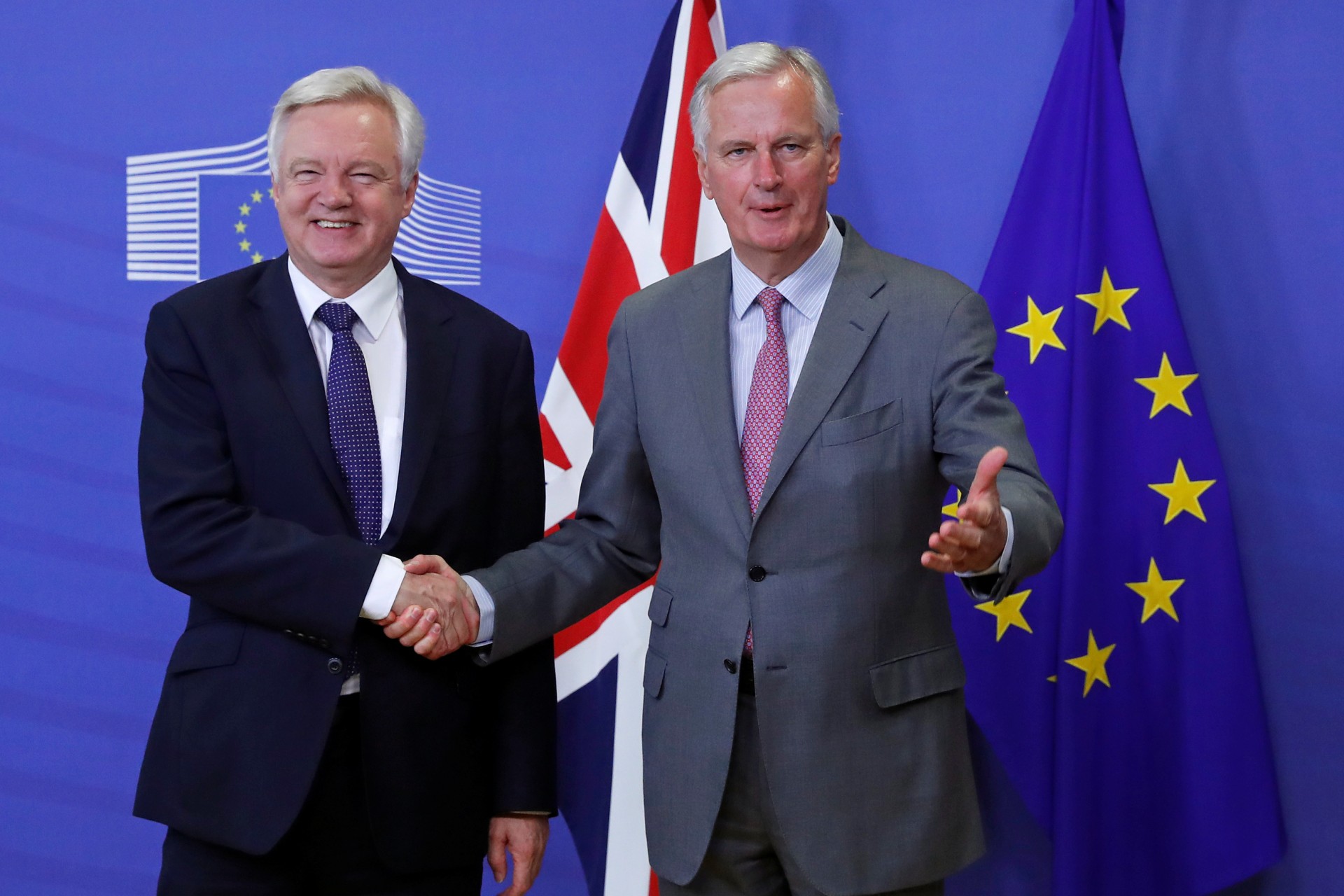Cyber Week in Review: August 25, 2017
This week: data sharing between the UK and EU post Brexit, the right to privacy in India, and an Indian-Chinese spat over tech.

By experts and staff
- Published
Experts
![]() By Adam SegalIra A. Lipman Chair in Emerging Technologies and National Security and Director of the Digital and Cyberspace Policy Program
By Adam SegalIra A. Lipman Chair in Emerging Technologies and National Security and Director of the Digital and Cyberspace Policy Program
Here is a quick round-up of this week’s technology headlines and related stories you may have missed:
1. We might be breaking up, but we can still be friends, right? The United Kingdom outlined its vision for a UK-EU personal data transfer arrangement in a post Brexit world. As part of the European Union, the UK was bound by the bloc’s rules that regulate the use, transfer and privacy of personal data through mechanisms such as the incoming General Data Protection Regulation. Once it leaves the EU, those rules will no longer apply to the UK and could potentially restrict the flow of data across the Channel. In response, the UK government is signaling that it will implement EU data protection standards into domestic law so that they come into force once the UK leaves. With that, the UK hopes that the European Commission will deem its rules adequate in order to maintain data flows. Post-Brexit, London will seek to develop a “special relationship” with Brussels to provide individuals and businesses with greater regulatory certainty. Although Brussels will want to maintain a data-sharing relationship with London, it is likely to come under pressure from privacy activists who argue the UK’s intelligence cooperation with the United States puts the data of EU citizens at risk.
2. You gotta fight for your right to privacy. In a landmark ruling, India’s supreme court unanimously recognized that Indians have a right to privacy. The decision came as the result of a fight over Aadhaar, an Indian government-run database that contains personal and biometric data of over one billion Indians. The database, originally meant as a voluntary measure to fight fraud, has now become mandatory to access a host of public and privately-run services, such as opening bank accounts, attending school, and filing taxes. Privacy activists argued that Aadharr violated Indians‘ privacy rights and that it’s massive collection of personal data (e.g. phone numbers, bank details, sexual orientation, health records) lacked adequate safeguards. The ruling does not automatically invalidate the Aadhaar program given that the court was only asked to determine whether the Indian constitution granted the right to privacy. However, Aadhaar critics are likely to use the decision to contest its validity in court. For its part, the central government in New Delhi welcomed the decision but emphasized that privacy rights upheld by the court are not absolute, and defended Aadhaar’s data privacy protections.
3. Add India to the list of countries that distrust Chinese tech. As tensions between China and India rise over a border standoff in the Himalayas, Indian authorities have intensified scrutiny of Chinese technology companies operating in the country. This week New Delhi announced a security audit of Alibaba’s popular mobile browser, UCWeb, which could lead to the app’s expulsion from the country if it’s found to have leaked user data. Earlier this month, India’s Ministry of Electronics and Information Technology launched a probe into the data security of twenty-one smartphone manufacturers, a majority of which are Chinese. Indian authorities are evidently uncomfortable with the inroads Chinese companies have made into India’s mobile market. Having benefited from their government’s own distrust of foreign firms, Chinese companies are now in danger of becoming political causality in declining relations between Delhi and Beijing.
